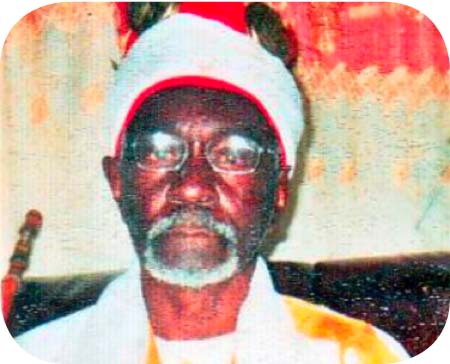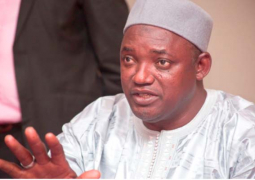
Under cross-examination, officer Saidykhan was asked if he knew that the accused is the Caliph General of the sheriffs in The Gambia.
“Yes,” said PW3.
“You know that by that position he holds a strong religious influence not only on the sheriffs, but the entire Muslim Umah in The Gambia?”
“Yes,” the officer answered.
“You equally know that by his position as Caliph General he has a host of followers in The Gambia?”
“Yes,” the police officer said.
“You know that the practice of religion is different from the administration of politics?”
“Yes,” the witness answered.
“You know that the practice of religion is headed by religious leaders.”
“Yes,” said PW3.
“You know that it is the religious leaders who make decisions in religious matters?”
“Yes,” PW3 answered.
“Prior to 29 July 2014, you were aware that various imams in The Gambia prayed on different dates in Tobaski and Koriteh?”
“Yes,” he answered.
“Are you aware that even outside The Gambia, religious leaders do not perform Koriteh on the same day?”
“No,” said PW3.
“But are you aware that even last Tobaski, people did not pray on the same day?”
“Yes,” PW3 said.
“Have you heard of anyone being arrested for performing prayers on different dates?”
“I don’t know,” said the officer.
“But you know that the laws of The Gambia does not differentiate or discriminate people who pray on different dates?”
“No,” said PW3.
“The announcement that was made on GRTS on 27 July 2014: are you aware that the announcement was a directive?”
“Not to my knowledge.”
“Do you know if that announcement was an order of any court of law or the National Assembly that make the laws in The Gambia?”
“Not to my knowledge,” said PW3.
“Did you know if the 1st and 2nd accused persons heard it from the radio?”
“Not to my Knowledge,” the police officer responded.
“Do you know the message that was sent by PW1 to the village of Sangajor?”
“Not to my knowledge,” said PW3.
“Do you know if the chief is the religious head of Sangajor?”
“He is not the head,” PW3 said.
“Do you know that the chief has no power to compel the imam or religious head of Darsilameh Sangajor to perform Idul Fitr on any day?”
“That is above me,” said PW3.
“You will agree with me that there is no compulsion in religion.”
“Yes,” said PW3.
“You will agree with me that you have never heard of anyone being arrested in The Gambia for praying on Tuesday or Monday.”
“That is above me,” the officer said.
“You will agree with me that idul Fitr prayers are based on citing of the moon.”
“Yes,” PW3 answered.
“You will agree also that not all in The Gambia can see the moon on the same day and time.”
“That is possible,” PW3 said.
“You will agree with me that the moon can appear in Brikama and those in Jarra Soma will not see it due to the clouds.”
“Yes,” said PW3.
“Do you know why people perform their prayers at different times?”
“That is due to time factor,” answered PW3.
“Apart from this case, have you ever heard of anyone being arrested for praying at different days?”
“Not to my knowledge,” the officer answered.
“Do you know the reason why the accused person is standing trial before the court?”
“As a police officer, I know that it is in connection with the Koriteh prayers,” said PW3.
“You will agree with me that all Muslims pray to God.”
“Yes,” said PW3.
“I am sure that as a Muslim it is not an offence to pray on any day.”
“Yes,” PW3 answered.
The case continues on 9 December 2014.
Read Other Articles In Article (Archive)


